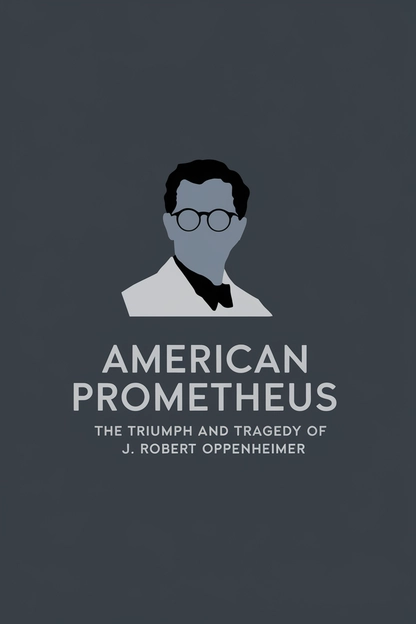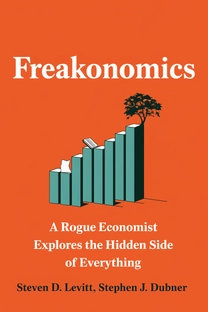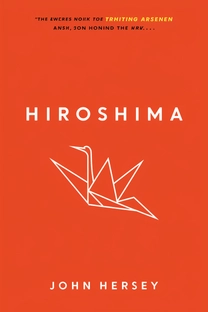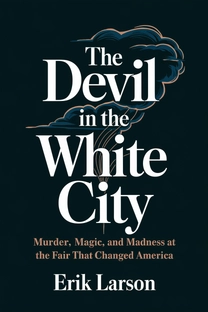
American Prometheus
The Triumph and Tragedy of J. Robert Oppenheimer
by Kai Bird, Martin J. Sherwin
Brief overview
This book follows the life of J. Robert Oppenheimer, revealing how a brilliant yet complex theorist became the driving force behind the atomic bomb. It also uncovers the personal struggles, moral dilemmas, and political pressures he faced, painting a portrait of a man shaped by intellect, ambition, and the burdens of history.
Introduction
Welcome. Imagine being handed the keys to an entirely new age—one that promises both soaring possibility and crushing peril. That’s precisely what happened to J. Robert Oppenheimer when he led the development of the atomic bomb. Yet, behind the explosive headlines was a quiet, introspective mind grappling with the moral weight of his discoveries.
In these pages, you’ll catch a glimpse of Oppenheimer’s formative years, his intellectual leaps, and the tensions that mounted at Los Alamos. But just as important are the moments when he doubted the value of what he had helped create. He was both revered as a genius and resented by those who questioned his loyalties.
Our journey will begin in the bustling streets of New York, follow him to the deserts of New Mexico, and end with the political storms that nearly ruined him. Through Oppenheimer’s story, we’ll see how a single life can reflect a nation’s struggles with science, identity, and the awesome power of the atom.
The Early Years in New York
Born into an affluent family on Manhattan’s Upper West Side, Oppenheimer was a timid boy who skipped grades and devoured the works of great authors. He might have seemed aloof, but his voracious intellect led him to master languages and develop a fascination with the natural world—collecting rocks, devouring science books, and sailing with spirited abandon.
The Ethical Culture School nurtured him with progressive teaching methods, encouraging independent inquiry. His fragile social skills often clashed with his drive to excel, but supportive mentors made sure he thrived academically.
At home, he was surrounded by art and intellectual discussion, traits that traveled with him throughout life. Still, behind this cultured exterior lay a temperament capable of both tremendous empathy and equally strong bursts of anger—foreshadowing the contradictions he would grapple with as an adult.
What is American Prometheus about?
This extensive biography by Kai Bird and Martin J. Sherwin explores the complex life and legacy of J. Robert Oppenheimer, often called the father of the atomic bomb. Through vivid storytelling, American Prometheus shows how one scientist’s ambition and intellect led to a breakthrough that changed military strategy, global politics, and humanity’s sense of possibility. From Oppenheimer’s early dedication to quantum mechanics in American universities to the intense Manhattan Project, the authors detail the scientific triumphs that made him a household name.
Yet this book goes beyond dry historical accounts. It examines the moral and ethical challenges that Oppenheimer confronted after witnessing the atomic bomb’s catastrophic effects. The pages capture the personal anguish he faced during government hearings that questioned his loyalty, revealing his struggles against a climate of paranoia. In doing so, American Prometheus becomes a study of how genius, politics, and conscience intersect and collide.
Review of American Prometheus
American Prometheus excels at blending scholarly detail with narrative flair. Readers get an inside view of Oppenheimer’s pivotal role in shaping nuclear research and the measures he took to share his knowledge responsibly. The authors illuminate his tensions with political figures, showing how the aftermath of World War II led to high-stakes debates on arms control, scientific transparency, and the country’s trajectory in global leadership.
On a practical level, the book encourages us to weigh innovation against ethical accountability. Although rich in historical context and scientific detail, it remains accessible to non-experts. The balanced prose makes it suitable for seasoned historians and new learners alike. In the end, American Prometheus stands as a must-read for anyone seeking a deeper view of the atomic age and the human stories behind it.
Who should read American Prometheus?
- History buffs interested in World War II and Cold War policies
- Scientists or engineers curious about the roots of nuclear research and its ethical aftermath
- Students of political science exploring the impact of government oversight on scientific freedom
- Readers seeking insight into how personal beliefs intersect with national security concerns
About the author
Book summaries like American Prometheus
Why readers love Mindleap
10-Minute Book Insights
Get the core ideas from the world's best books in just 10 minutes of reading or listening.
Curated For You
Discover your next favorite book with personalized recommendations based on your interests.
AI Book ExpertNew
Chat with our AI to help find the best book for you and your goals.
Reviews of MindLeap
Love how I can get the key ideas from books in just 15 minutes! Perfect for my busy schedule and helps me decide which books to read in full.
Alex R.
The summaries are incredibly well-written and the audio feature is perfect for my commute. Such a time-saver!
Jessica M.
Great app for personal growth. The insights are clear and actionable, and I love how they capture the essence of each book.
Chris P.
The app is beautifully designed and the summaries are top-notch. Definitely worth every penny!
Sarah K.




